Frequently Asked Questions
PROUD TO BE PART OF HARTFORD!
The Hartford Heritage Project is a place-based education initiative. HHP makes Hartford’s institutions, landmarks, and neighborhoods an extension of our classroom, giving students a practical and local context for knowledge learned in their courses, and making the school a vital part of the life of our community.
What is place-based learning?
The Hartford Heritage Project is a place-based education (PBE) initiative. PBE takes the place where a school is located and incorporates it into the curriculum. Thus, museums, historical societies, parks, community centers, care facilities, local businesses, government agencies, and other valuable community resources become an extension of the classroom. This gives students a practical and local context for knowledge learned in their courses, and it makes the school a vital part of the life of the community. Browse books and articles on PBE in the annotated bibliography here.
As a faculty member, how can I take part in HHP?
- Explore Partner Sites to get ideas on how to use them in your course. Add class visits to your syllabus before the semester starts.
- Attend once-a-semester special discount performances like One Note and One Play.
- Invite your students to take part and/or host the organization’s staff in your classroom for an in-class Workshop.
- Develop or make use of shared Curriculum Templates around anything that takes students out of the classroom and into the city (the river, the park, the Ancient Burying Ground, the Capitol, local shelters, urban farms, community centers, etc.).
- Offer extra credit opportunities to your students (note, while it’s helpful to find opportunities that connect with the subject you are teaching, it is also important to see the extra credit as expanding the students’ horizons while in college).
- Looking for online content to assign as extra credit? A variety of local history lectures from CCC can be found on our Hartford History Lectures page.
- Contact Us by emailing an HHP Liaison for advice on how to develop assignments or projects.
As a student, how can I take part in HHP?
- Find free tickets and discounted opportunities at HHP Partner Sites.
- Explore our List of Classes that make use of Place-Based Learning. Many classes at CCC have connections to Hartford’s Heritage but we also have📍immersion classes taught on-site at our partner institutions.
- Consider a Liberal Arts Action Lab course (earn 6 credits for one class). Make a difference in Hartford while earning credits as part of a cohort of students from CCC and Trinity College.
- Attend once-a-semester specially discounted performances like One Note and One Play.
- Attend or view a previously recorded Hartford History Lecture (new series announced at the start of each semester).
- Visit the Mallett on Main Art Gallery (exhibitions ongoing, open daily).
As a member of staff, how can I take part in HHP?
HHP events are intended for the entire college community, and as a staff member, that means you are included.
- Familiarize yourself with the free and discounted opportunities at our Partners Sties and start exploring with your CCC ID!
- Attend One Note and One Play events, see a concert at Capital, attend a Hartford history lecture, visit the Mallett on Main Art Gallery.
- Join a workshop – most faculty workshops are open to staff as well.
How do I sign up for a workshop?
One Play workshops are conducted in individual classes. Sign ups for a One Play workshop includes a Hartford Stage teaching artist’s visit to your class and a one-hour workshop. All disciplines are welcome! Please note: (1) Registrations are limited due to cost; sign up early to secure your reservation. (2) Faculty must be present during the workshop and are encouraged to participate with students.
Other workshops are announced via email and on the HHP website with links to respective registration forms.
What are the logistics of taking my class to a play or concert?
- Plan ahead and put the event on your syllabus. If there is a cost involved (usually not more than $5), it is recommended that you state this in your syllabus and announce it from the first day of class. You may want to say “If this poses a problem, please see me privately.” If any students do express their inability to pay, contact Jeff Partridge for assistance.
If the event is extra credit, provide your students with the event information, including how to get tickets, and leave it to them. Some students may not be able to attend an event that happens on only one date/time, so be sure to offer extra credit across variety of dates/times or events.
If the event is required, there are two ways of organizing it:
- See it “on your own.” Explain that students will need to attend the event on their own prior to a particular deadline, and list this requirement in your syllabus. In this way, the students are responsible for the material for class discussion and/or assignments in the same way that you require other material, like readings or viewing media. With this method, you do not need to purchase tickets for students but leave it up to them.
- See it together. Explain that you will see the event together as a class on a particular date/time, and list this requirement in your syllabus. This is a good way to build class relationships, but be sure to make a contingency plan for any students who are not available for the scheduled date/time.For students who are unable to attend the scheduled date/time, either (A) inform students that they need to go to or call the box office to purchase tickets themselves or (B) purchase the tickets for your class in bulk and ask the student to buy their tickets through you. Option (A) sometimes results in students not getting tickets before the event sells out; Option (B) sometimes results in the instructor “eating” some of the tickets if students don’t show.
What are the logistics of taking my class to a museum or other partner institution?
- Make arrangements with the institution you are visiting to reserve a date and time for the visit. Check the Benefits page for contact information and ticket costs (if any). Our partner institutions encourage you to share your intentions for the visit so they can help you make thematic connections to your course. Note: Even if entry is free and you are going to do the leading and teaching, it is an important courtesy to let the institution know about your visit.
- Plan ahead and put the event on your syllabus. If there is a cost involved (usually not more than $5), it is recommended that you state this in your syllabus and announce it from the first day of class. You may want to say “If this poses a problem, please see me privately.” If any students do express their inability to pay, contact Jeff Partridge for assistance.
- If the event is within walking distance, you can walk there together as a class. You’ll need to build in time for walking there and getting back to the college in time for the start of the next period.
- Another option is to have students meet you there. You should provide directions and transportation options and stipulate a start time that includes reasonable transportation time from the college. You may want to provide a map and bus route information. Students may car pool, and you may drive students in your car or use the college van (reserve the 7-seater van by contacting the business office), but you should never organize car pools yourself (let the students self select).
How do I work One Play or One Note into my syllabus?
- Plan ahead and put the event on your syllabus. If there is a cost involved (usually not more than $5), it is recommended that you state this in your syllabus and announce it from the first day of class. You may want to say “If this poses a problem, please see me privately.” If any students do express their inability to pay, contact Jeff Partridge for assistance.
- Plays and concerts can be a great extra credit opportunity. Even if the themes do not relate to your course, you are encouraging your students to expand their horizons by exploring art and culture in the city. You can devise an assignment related to your course, or you can simply require a one-page reflection on the event in order to obtain extra credit. Just ask students to describe the event and talk about their own experience/reactions seeing it.
- Even better, create a lesson, activity, or project that relates to your course. Need help Composition classes can get pointers from Daniela Ragusa and Kevin Lamkins, both of whom have developed assignments that fall within the ENG 095 and ENG 101 expectations.
- The HHP can get access to scripts, articles, and other information that may help you develop thematic connections to your course material. Ask our Theater Arts Program Coordinator Julia Rosenblatt, Music Industry Program Coordinator Josh Hummel, the HHP Liaison listed on the Benefits page, or HHP Director Jeff Partridge.
- Do some research on your own. You may find useful articles or media through an internet search or in our library databases.
Sample Assignments
Forms
HHP Course Submission or Edit Form
Mailing Lists
Sign up for email announcements at each of our partner sites:
The Amistad Center for Art & Culture
The Bushnell Performing Arts Center
Connecticut Historical Society
Connecticut’s Old State House (at bottom of page)
Harriet Beecher Stowe Center (at bottom of page)
Hartford Symphony Orchestra (quarterly newsletter archive)


